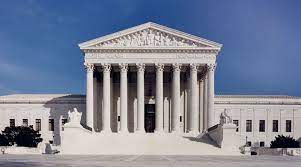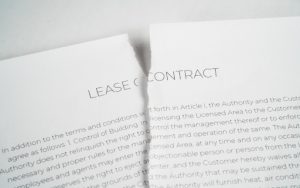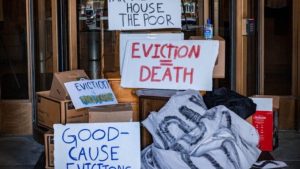Her Majesty’s Riches
 Long-time royal watchers were dismayed to hear the news of the death of Great Britain’s Queen Elizabeth II. This author and others admired Her Majesty’s service to her country and her longevity. While we obviously do not have royalty in the United States, many of us consider our ancestors to be royals on a personal level. This post will address the unexpected parallels between the distribution of the Queen’s assets and property interests that may be held by our non-royal clients.
Long-time royal watchers were dismayed to hear the news of the death of Great Britain’s Queen Elizabeth II. This author and others admired Her Majesty’s service to her country and her longevity. While we obviously do not have royalty in the United States, many of us consider our ancestors to be royals on a personal level. This post will address the unexpected parallels between the distribution of the Queen’s assets and property interests that may be held by our non-royal clients.
Queen Elizabeth II enjoyed the ownership and use of multiple castles. Even though most Americans do not own castles, we still use the expression “a man’s home is his castle.” This begs the question, who will receive one’s castle after a relative’s death? If the property is held as joint tenants with right of survivorship, the last owner to survive will own the entire property automatically by “operation of law.” This result is not unlike the likely result that The Queen’s castles are now automatically owned by her son who is now known as King Charles III. Further, if the owners before death were husband and wife, the property is considered to be owned as tenants by the entirety, automatically leaving the property to the surviving spouse.
If the “castle” is not owned by marital spouses or as joint tenants with right of survivorship, then ownership will be determined by whether the deceased person had an experienced attorney draft a Will. If there is no Will, then the laws of intestacy and an estate administration proceeding will be necessary. Intestacy is similar to the rules of succession and inheritance by royals, in that the person(s) in the particular decree of relationship stand to inherit the subject property.
Renting a Foreclosed Property? Here Are Your Options.
 As the COVID-19 pandemic fades, many legal cases that were temporarily postponed by the Courts, such as foreclosures, are resuming and going forward in litigation. This results in more properties owned by borrowers failing to pay their mortgages being foreclosed. Due to the increased number of cases going to a final judgment of foreclosure and sale, and then being sold to the highest bidder, there is an increased amount of rental tenants in foreclosed properties. This post will discuss the legal status of these tenants and what their legal options will be during and after the foreclosure process.
As the COVID-19 pandemic fades, many legal cases that were temporarily postponed by the Courts, such as foreclosures, are resuming and going forward in litigation. This results in more properties owned by borrowers failing to pay their mortgages being foreclosed. Due to the increased number of cases going to a final judgment of foreclosure and sale, and then being sold to the highest bidder, there is an increased amount of rental tenants in foreclosed properties. This post will discuss the legal status of these tenants and what their legal options will be during and after the foreclosure process.
Many rental tenants become aware, during their tenancy, that the owner of the property is being foreclosed, due to their failure to pay the mortgage. As occupants of the premises, the tenants may be served with a foreclosure Summons and Complaint, addressed to “John Doe” and/or “Jane Doe” as occupants, due to the foreclosing lender being unaware of the names of the rental tenants.
In such a case, the rental tenants should engage experienced counsel familiar with the legal aspects of the situation. The rental tenants have several options. Until the foreclosure is completed by an auction sale and legal transfer of the property to either the lender or the successful bidder at the foreclosure sale, a legal tenant is generally not subject to eviction. If the tenant has a current lease of at least fair market value, his is permitted to stay until his lease term expires. Even after their lease expires, in general, tenants will not be subject to eviction proceedings until after the property is transferred from its current owner through the foreclosure process. The new owner may then commence eviction proceedings in the local landlord-tenant Court after it obtains title to the foreclosure property.
Supreme Court’s Abortion Decision- Possible Implications for Same-Sex Marriage & Estate Planning
 Many of our readers are aware that the United States Supreme Court recently overturned Roe v. Wade, its landmark decision wherein it determined that the right to privacy derived from the 14th Amendment to the Constitution applies to abortion rights. Dobbs v. Jackson Women’s Health Organization , found that abortion rights should now be determined by each individual state, instead of at the Federal level. Justice Samuel A. Alito, Jr., as lead author of Dobbs, wrote that the Court was ruling with respect to abortion rights only, but not as to other rights derived from the line of right to privacy cases, such as contraception and same-sex marriage. The concurring opinion of Justice Thomas in Dobbs raised concern because he suggested that the Court should reconsider other privacy cases. While it is not this author’s intent to comment on the abortion rights debate, it is the intent of this post to highlight legal protections required by same-sex couples, particularly with respect to estate planning should marriage equality not be consistently upheld on the Federal level.
Many of our readers are aware that the United States Supreme Court recently overturned Roe v. Wade, its landmark decision wherein it determined that the right to privacy derived from the 14th Amendment to the Constitution applies to abortion rights. Dobbs v. Jackson Women’s Health Organization , found that abortion rights should now be determined by each individual state, instead of at the Federal level. Justice Samuel A. Alito, Jr., as lead author of Dobbs, wrote that the Court was ruling with respect to abortion rights only, but not as to other rights derived from the line of right to privacy cases, such as contraception and same-sex marriage. The concurring opinion of Justice Thomas in Dobbs raised concern because he suggested that the Court should reconsider other privacy cases. While it is not this author’s intent to comment on the abortion rights debate, it is the intent of this post to highlight legal protections required by same-sex couples, particularly with respect to estate planning should marriage equality not be consistently upheld on the Federal level.
In Obergefell v. Hodges , the Court found that same-sex marriage is a right derived from the 14th Amendment to the Constitution. However, if this decision is reexamined and overturned, the implications for same-sex couples could be severe. Those persons already married may have the rug pulled out from under them and be legally considered to be unmarried, depending upon their state. It should be noted that there is a movement to pass legislation at the Federal level to codify the right to same-sex marriage. Such legislation may not be ultimately passed into law or could be overturned by future Supreme Court rulings.
Unmarried couples should engage the services of experienced attorneys to draft estate documents, such as Wills, Trusts, Living Wills, Health Care Proxies and Powers of Attorneys. The reason for this activity is that the law generally considers that default decision maker to be the spouse with respect to end of life health care decisions and distribution of assets. Same-sex partners may not always be considered to be legal spouses if judicial decisions continue to follow this conservative route. If a person dies without a Will in New York, the applicable statute determines the distribution of assets and who may be the Administrator of the Estate. Unless same-sex marriage is consistently recognized, a same-sex partner may be excluded from receiving assets and from acting as Administrator. Family members who are estranged from the deceased could take the place of the intended life partner in this event. The best way to prevent this outcome is to have professionally prepared estate documents in place that comply with one’s wishes and clearly state that the same-sex partner is to inherit and serve as fiduciary for the Estate.
Lease Non-Renewals in New York – Changes in the Law

Our firm often receives inquires regarding renewals of residential leases. As prior blog posts have discussed, in general, a tenant in New York has no legal right to a renewal lease, unless the rental unit is subject to some type of rent regulation. Another exception may be where the lease itself contains a clause that allows either party to renew the lease upon proper notice to the other party. The notice period may be 30 or 60 days (or another time length) prior to the current lease expiration, so it is important for experienced counsel to review residential leases to ensure that, if a party wishes to renew, proper notice is timely sent to the other party under the lease terms.
A common situation arises when the landlord does not wish to renew a tenant’s lease. Provided the rental unit is not subject to rent regulation, under current New York law, the landlord does not have to provide a reason for such non-renewal. However, the non-renewal cannot be for discriminatory purposes against the tenant in question. In 2019, New York law was changed regarding non-renewal of tenant’s leases. These changes will be discussed in this post.
Under the revised law, also known as the Housing Stability & Tenant Protection Act of 2019, which became fully effective in October, 2019, landlords are now required to give notice when they decide not to renew a tenant’s lease. The amount of time required for the notice depends on how long the tenant has occupied the premises, as well as the length of their lease term. If the tenant has lived in the unit for less than one year, and their current lease does not have a term of at least one year, the landlord must give thirty day’s notice of non-renewal. Since most residential lease terms are for at least one year, this subsection will rarely apply.
Foreclosure Surplus Monies – Issues of Multiple Claimants
 Prior blog posts have discussed the concept of surplus monies in foreclosure proceedings. When a foreclosed property is sold at public auction, the winning bid may exceed the total amount owed to the entity foreclosing on the property. In such a case, the excess funds are considered “surplus funds,” and the Court-appointed Referee will then deposit the surplus funds with the New York State Department of Finance, which has the authority to disburse the funds to the proper party, upon receipt of a Court order from the Court that handled the original foreclosure case.
Prior blog posts have discussed the concept of surplus monies in foreclosure proceedings. When a foreclosed property is sold at public auction, the winning bid may exceed the total amount owed to the entity foreclosing on the property. In such a case, the excess funds are considered “surplus funds,” and the Court-appointed Referee will then deposit the surplus funds with the New York State Department of Finance, which has the authority to disburse the funds to the proper party, upon receipt of a Court order from the Court that handled the original foreclosure case.
The question of who exactly is the “proper party” is one that our firm has encountered fairly often. There are several situations in which more than one entity may have claims to the surplus funds. This post will further discuss those situations.
In general, the original owner of the property (prior to the foreclosure sale) has the first claim to any surplus funds. If it is an individual, he can retain experienced counsel to file the proper motion papers to obtain a Court order allowing disbursements of the funds. There may be situations where the property was owned by a corporation or other entity with multiple owners. In such cases, the entity itself would be entitled to the surplus funds. If it is a corporation, the funds would be payable to the corporation itself. The corporation’s governing documents would then determine how the corporation would disburse the funds.
Albany’s Proposed “Good Cause Eviction” Bill – What Does it Mean?
 A recent article in the New York Post discusses a proposed bill relating to evictions which is being considered by the New York State legislature. The “Good Cause” eviction bill would limit evictions in New York to only the narrowest of circumstances.
A recent article in the New York Post discusses a proposed bill relating to evictions which is being considered by the New York State legislature. The “Good Cause” eviction bill would limit evictions in New York to only the narrowest of circumstances.
Since the expiration of the COVID-19 eviction moratorium in January, evictions have generally resumed in New York. Under the moratorium, landlords were prevented from evicting tenants, unless they were an actual danger to people and property. As COVID-19 waned, the Governor allowed the moratorium to expire. As a result, landlord-tenant Courts have generally resumed normal operations, and tenants have been subject to evictions after proper Court proceedings have been held.
However, as a result of the temporary eviction moratorium, there have been some advocates who are attempting to further limit evictions, even though COVID-19 has waned and available vaccines have greatly reduced the risk factors for most individuals. Under the proposed “Good Cause” eviction bill, landlords would not be allowed to evict tenants, except for non-payment of rent and lease violations.







